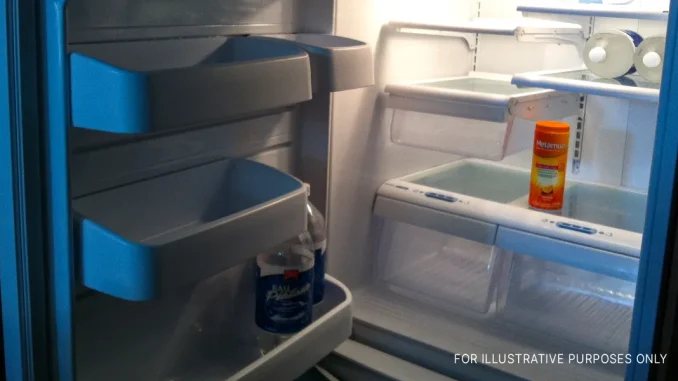
Our home was once a warm, inviting space filled with love and shared meals. But over time, things changed—and not for the better. I found myself repeatedly in the kitchen, cooking enough to feed everyone, only to find that by the time I or my daughter got to the table, the food was gone.
My name is Lucy. I’ve lived in this house for more than two decades. These walls have seen everything: laughter, birthdays, late-night study sessions, and quiet mornings with tea. Lately, though, it’s been more about tension than joy.
When my son Brian and his wife Emily asked to move in to save money, I agreed without hesitation. My daughter Ruby, who’s in college, already lived with me, and I thought the extra company would be a good thing.
At first, it was. We shared meals, stories, and responsibilities. I loved making dinner and hearing everyone’s voices echoing around the dinner table. But slowly, that balance shifted. Ruby spent more time at school. Brian and Emily stayed home more, eating every meal here—and eating everything.
It started with little things. A missing leftover here. An empty pot there. Until one day, I made a big pot of spaghetti and meat sauce—Ruby’s favorite—and by the time I finished a few chores and came to eat, it was completely gone.
Ruby came home that night hoping for a plate. Her face fell when I told her there was none left.
This wasn’t a one-off. I baked a beautiful two-layer cake thinking it would last us all weekend. By the time I returned from work that day, only a sliver remained.
It wasn’t just frustrating—it was disheartening. I was cooking for everyone, paying for the groceries, and yet somehow, my daughter and I were left with scraps. Ruby finally voiced what we were both feeling: “Mom, this isn’t working. There’s never anything left for us.”
That night, I made a decision. I couldn’t keep letting this happen. I called a family meeting and laid out a new system: I’d portion meals for everyone and label leftovers. If anyone was still hungry after that, they were free to supplement with their own groceries.
Brian and Emily didn’t take it well. “Seriously? You’re portioning food like we’re kids?” Emily asked.
“No,” I said calmly. “I’m making sure everyone eats. Including Ruby.”
They argued, accusing me of being overbearing, but I stood firm. For the first time in weeks, Ruby went to bed full. The fridge had food in it the next day. It wasn’t about micromanaging—it was about fairness and respect.
Eventually, tensions boiled over. Brian and Emily refused to adapt. So, I made another hard call: if they couldn’t live here respectfully, they’d need to find another place to live.
That conversation wasn’t easy. There were raised voices, hurt feelings, and an uncomfortable silence afterward. But I knew I had to protect my home and my daughter’s well-being.
Ruby thanked me for standing up for us. I didn’t feel triumphant—just relieved that someone noticed and appreciated the effort. And even though I wondered if I’d done the right thing, I realized something important: sometimes, love looks like boundaries. And sometimes, protecting your family means making the hardest decisions.
Leave a Reply